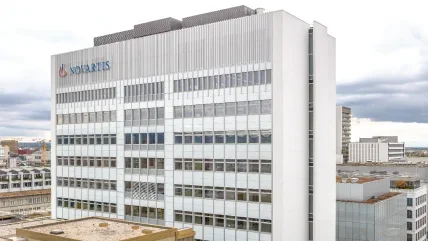
Swiss pharmaceutical firm Novartis has received the US Food and Drug Administration (FDA) approval for Kisqali (ribociclib), in combination with an aromatase inhibitor (AI), to treat a type of early breast cancer (EBC).
Kisqali is a selective cyclin-dependent kinase inhibitor, which helps slow the progression of cancer by inhibiting cyclin-dependent kinases 4 and 6 (CDK4/6).
The CDK4/6 proteins, when over-activated, allow cancer cells to grow and divide rapidly.
Novartis developed Kisqali under a research collaboration with Astex Pharmaceuticals, a UK-based biotechnology company focused on oncology and central nervous system diseases.
Kisqali plus AI is indicated for people with hormone receptor-positive/human epidermal growth factor receptor 2-negative (HR+/HER2-) stage 2 and 3 EBC at high risk of recurrence.
In EBC, Kisqali is used as a once-daily oral dose of 400mg (two 200 mg tablets) for three weeks, followed by one week off, in combination with four weeks of any AI, for three years.
Novartis US president Victor Bultó said: “With this approval, we are redefining treatment options for a broader population of people impacted by breast cancer and facing the persistent risk of recurrence.
“We continue to transform cancer care with Kisqali, building on its established profile in the metastatic setting and now helping a wide range of people as they strive to stay cancer-free following an early-stage diagnosis.”
The FDA approval is based on results from the Phase 3 NATALEE trial, which evaluated the efficacy and safety of Kisqali plus endocrine therapy (ET), compared to ET alone.
In the study, Kisqali plus ET showed a significant and clinically meaningful reduction in the risk of disease recurrence (25.1%) in patients with HR+/HER2- stage 2 and 3 EBC.
The combination resulted in an invasive disease-free survival (iDFS) benefit that was consistently observed across all patient subgroups.
Kisqali 400mg dose was well tolerated in the NATALEE clinical trial, with discontinuations mainly driven by asymptomatic laboratory findings.
Furthermore, Novartis has announced its patient support programme to provide eligible patients with educational materials, insurance coverage, and potential financial assistance options.
NATALEE trial lead investigator Dennis Slamon said: “The FDA approval of Kisqali for this early breast cancer population, including those with N0 disease, is a pivotal moment in improving our approach to care.
“Today’s approval allows us to offer treatment with a CDK4/6 inhibitor to a significantly broader group of people as a powerful tool that, combined with endocrine therapy, can help further minimise their risk of cancer returning.”






